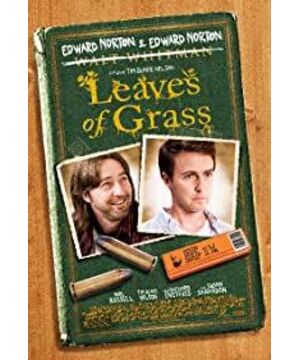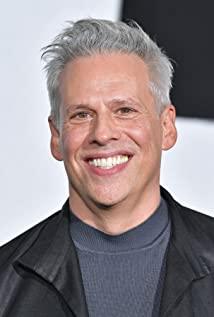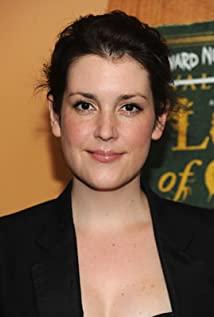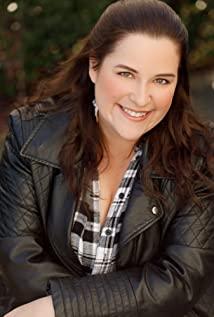smart is the new sexy.
Of course, the most interesting part of the movie is not only the acting of these two people. But the philosophy behind its story. I couldn't resist excerpting these two philosophy lessons here:
Leaves of Grass
-Because passion, Plato seems to be saying is essentially and mercilessly
human.
-And the best that we can hope to do is to quell it through relentless discipline. All we can do is to quell it through relentless discipline.
-To Socrates, the healthy life is comprised of constant focus by the individual to excise those forces that weaken or confuse his understanding of the world around him. A piece of your own pure land is not affected by those distracting thoughts that disturb cognition.
-He implores us to devote our lives to this kind of control. He prays for us to maintain such self-discipline, which means self-discipline every moment.
-Socrates recognized what every philosopher and religion ,for that matter,in the history of the word .from Plato to Aristotle,from Epicurus to the Stoics,from the Judeo-Christions to the Buddhists,here all observed which is that the balance for a happy life is illusory. Socrates recognized this, and it was recognized by all philosophers and religious figures throughout history. From Plato to Aristotle, from Epicurean to Stoic, from Judeo-Christian to Buddhist, without exception. The balance required for a happy life is illusory.
-And as soon as in our gorgeausly-flawed human way, we think that we're attained it once we, in our inherently human way, mistakenly think that balance has been reached.
-We're pretending dirinity, and we're gonna crash
The Life of David Gale
-You get Lacan's polit. Fantasies have to be unrealistic, because the moment,
the second that you get what you seek, you don't, you can't want it anymore. That's the whole point of Lacan's philosophy, fantasy has to go beyond reality, because the moment it becomes reality, you can't imagine it anymore .
-In order to cantinue to exist desire must have its objects perpetually absent. In order to continue fantasizing, your desire must never be fulfilled.
-It's not the "it" that you want, It's the fantasy of "it". The point is not the "it" that you want, but the fantasy itself.
-This is what Pascal means when he says that we are only truly happy when daydreaming about future happiness.
-Or why we say the hunt is sweeter than the kill or be careful what you wish for, not because you'll get it, but because you're doomed not to want it once you do. Like we always say, fishing The fun is in "fishing" rather than in "fishing". Or: be careful what you wish for. Not because you'll get it but because once you get it, you'll never want it again.
-So the lesson of Lacan is "Living by your wants will never make you happy".
-What it means to be fully human is to strive to live by ideas and ideals and not to measure your life by what you've attained in terms of your desires, but those small moments of integrity, compassion, rationality, even self sacrifice. The most human truth is to try to live with your thoughts and ideals. Don't measure your life by how many desires you achieve. And how many moments of sincerity, compassion, reason, and even self-sacrifice should be obtained.
-Because in the end, the only way that we can measure the significance of our own lives is by valuing the lives of others.
I’ve watched the plot of the movie two or three times and I don’t want to repeat it again (this seems to be the point of Lacan’s philosophy in the excerpt), but these two short philosophy lessons, I will read it again and again from time to time, and I still watch it. Emotionally. The two philosophy teachers in the play live very different lifestyles, which is what Nietzsche called the difference between the god of wine and the god of the sun. Or to put it another way, emotion and reason - righteous villains and evil villains. The conflict between these two extremes will manifest in everyone. Take myself as an example. In reality, I am a very rational person, and the spirit of Dionysus rarely shows in me. This is also an important reason why I like Edward Norton, restraint and calm - I can't control the whole world, but I can indirectly control the world by controlling myself. I also knew deep down that it was a fallacy, a childish fantasy, a fragile balance.
Strangely enough, I found through extremely rational analysis that reason is not perfect for reality. It also explains my love for characters like Kevin Spacey, who has deep nasolabial creases, firm eyes, and a mouthful of passion and singing. He was favored by the god of wine. I yearn for this kind of person, because I will never be able to become such a person. Reason has taken root in my mind, my passion will be thwarted by reason, and my mouth will only flow out of poetry that has been brewing for a long time. Will the sun god win eternal victory?
Serious spoilers below.
Norton (hereafter using the actor's original name instead of the character in the play) returns to his hometown, to his former land of chaos and Dionysus. To accept the absurd advice of his brother (another man favored by the spirit of Dionysus), encounter love (a poetess who fishes with her hands is as wise as Athena), and see her brother die (a dentist is for what reason cannot resolve, the accident— — God throws the dice), all these experiences made him re-examine his life. There is a statement about the existence or non-existence of God when his brother goes to carry out his crazy actions: God exists, but his existence is like a parallel line. The definition of parallel lines is that they extend infinitely and never intersect, but parallel lines do not exist in reality, it is just a concept.
With a little philosophical knowledge I know, this view is similar to Plato's Republic. There is a perfect image of something in our minds, but it is not equivalent to the reality. As an example, we see a group of horses, none of them are exactly the same, but we don't call one of them a sheep, because we have a perfect concept in our head, a perfect concept of a horse. The beauty of a thought mentioned in Guo Degang's cross talk is also an ideal model for this. Our heart desires this ideal state, but we cannot get there through reason. Norton ultimately chooses to stay, and he and the poetess are silent in the rain, ending in a peaceful revelry.
In contrast, Spacey's Dionysian life destroyed his relationship and career. This is the common fate of this type of character, a way of life that greatly overdraws pleasure, and an indulgent orgasm can bring a fall like a hangover. Those who abstain from sexual desire are keenly aware of this gap and fight against it, and the result is not much better. There is no difference in the nature of sexual indulgence and sexual abstinence. At the end of the film, Kevin Spacey chose death with great sanity to defend his cause. It's so strange that a carnival ends up on the path of reason, and a rational person goes back to carnival. What did they see during this reversal?
Philosophy may be of no use to our lives, and the ultimate questions that have no answers will stay with us all our lives. But philosophy makes people think, and thinking makes people miserable. For a person who is abstaining from sex, the pain is bearable, and I am willing to embark on this road full of thorns, whether it leads to the kingdom of Dionysus or something else, I don't know.
View more about Leaves of Grass reviews











